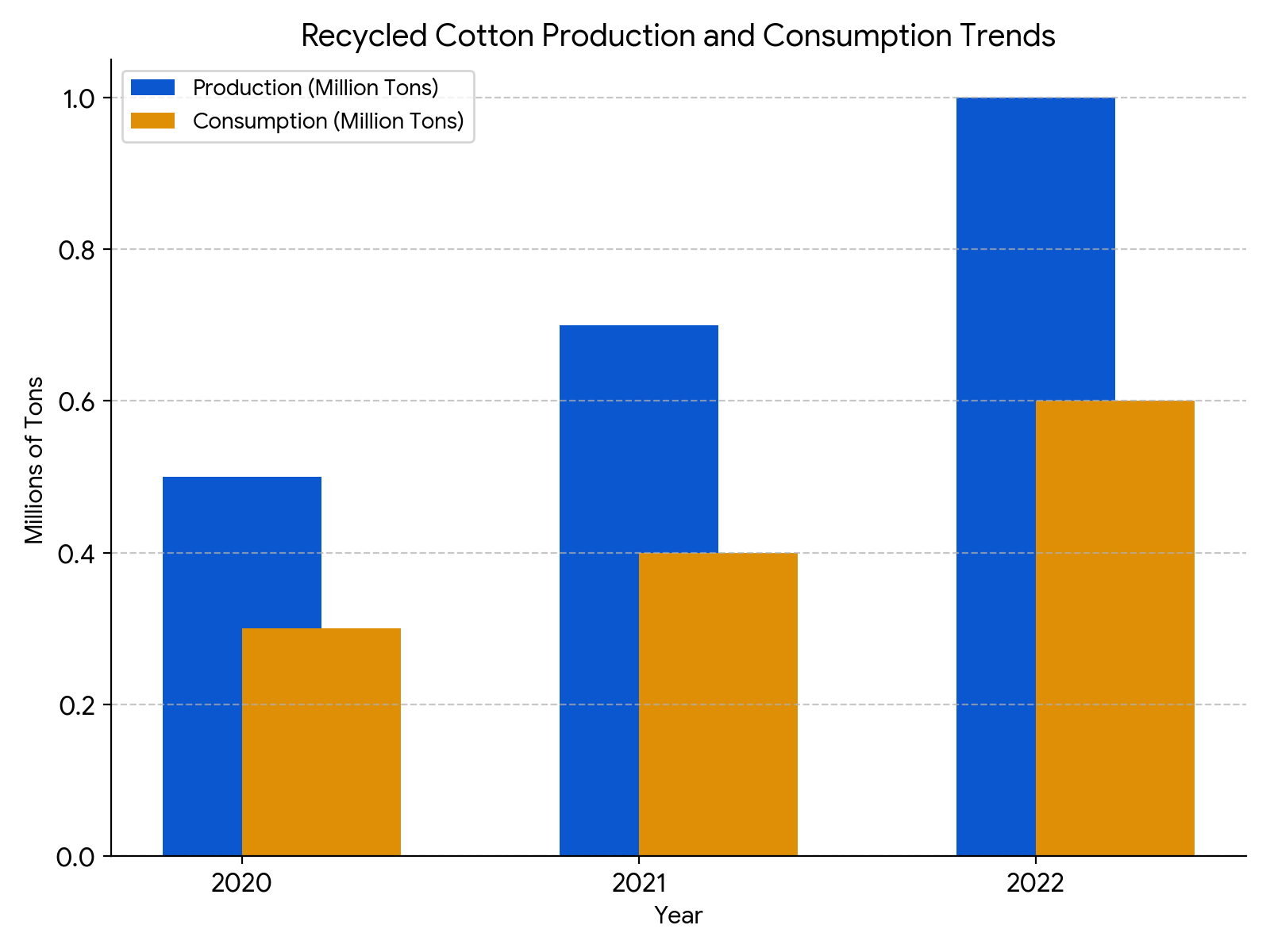Recycled Cotton: Weaving a sustainable future for Indian textiles

India, a global textile powerhouse, is increasingly embracing recycled cotton fiber as a sustainable alternative to virgin cotton. While conventional cotton production consumes vast amounts of water and pesticides. Recycled cotton fibre offers a solution, transforming textile waste into a sustainable resource. This eco-conscious shift is driven by growing environmental concerns and consumer demand for greener fashion.
The Indian market for recycled cotton fibre is in its nascent stages but demonstrates promising growth. According to a report by Tex Bharat, a textile industry research body, the market size for recycled cotton fibre in India was estimated at Rs 2,000 crore ($250 million) in 2023 and is projected to reach Rs 7,000 crore ($875 million) by 2028, at a CAGR of 25 per cent. This growth is driven by rising consumer awareness about sustainable practices and increasing demand from eco-conscious brands. Similarly as per a report by Zion Market Research, the market was valued at around $17.5 million in 2020 and is projected to reach $102.3 million by 2028, reflecting a CAGR of 23.8 per cent.
Production and market dynamics
Currently, India's recycled cotton fiber production capacity is estimated to be around 50,000 tons per annum. However, demand is outpacing supply, creating an opportunity for new players to enter the market. Key players in the Indian recycled cotton space include Sulochana Mills, Aditya Birla Group, and Dhunseri Petrochemicals. The production of recycled cotton fiber in India is primarily driven by small and medium-sized enterprises (SMEs). These units collect pre-consumer and post-consumer cotton waste, which is then processed mechanically and chemically to extract usable fibers.
Table: Projected market size of recycled cotton fibre in India (Rs crore)
|
Year |
Market size |
|
2023 |
2,000 |
|
2024 |
2,500 |
|
2025 |
3,125 |
|
2026 |
3,906 |
|
2027 |
4,813 |
|
2028 |
7,000 |
Source: Tex Bharat Report
For example, Sulochana Mills, a prominent Indian textile manufacturer, exemplifies the growing adoption of recycled cotton. The company has incorporated recycled fibers into its product portfolio, offering a range of sustainable fabrics. “We see recycled cotton as a vital component of our future,” says Amitabh Sharma, CEO of Sulochana Mills. “It allows us to cater to the evolving needs of environmentally conscious consumers and brands.”
Similarly, Daks India, a leading phone case manufacturer, exemplifies the growing trend of integrating recycled cotton into product lines. They offer a trade-in program for old phone cases, collecting pre-consumer waste that is then recycled into new, sustainable phone cases made from 70 per cent recycled cotton blended with 30 per cent organic cotton. This approach promotes circularity in the fashion industry, minimizing waste and resource consumption.
In fact, Lenzing AG, an Austrian fibre manufacturer, offers a successful case study. They partnered with The Renew Project, a sustainability non-profit, to establish a pilot project in India for collecting post-consumer cotton waste. This initiative demonstrates the potential of collaborative efforts.
Challenges and strategic solutions
Despite the promising outlook, the recycled cotton sector faces hurdles:
Limited collection infrastructure: A well-organized system for collecting pre-consumer and post-consumer cotton waste is crucial. Strategic partnerships with waste management companies and garment manufacturers can address this gap.
Sorting and processing costs: Sorting and processing recycled cotton are often more expensive than virgin cotton. Government incentives and technological advancements can help reduce these costs.
Quality concerns: The quality of recycled cotton fibers can be inconsistent. Implementing stricter quality control measures and using innovative blending techniques with virgin cotton or other sustainable fibers can ensure product quality.
Consumer education: Raising awareness about the benefits of recycled cotton will drive demand.
Industry leaders are proposing solutions to overcome these challenges. Partnerships between brands, waste management companies, and recyclers can create a closed-loop system for collecting and processing cotton waste. Meanwhile, policy support and incentives for establishing recycling facilities can accelerate growth.
The future of recycled cotton in India is bright. By addressing the existing challenges through collaborative efforts, India can become a global leader in sustainable textile production. This shift will not only benefit the environment but also create a win-win situation for brands, consumers, and the Indian economy.
